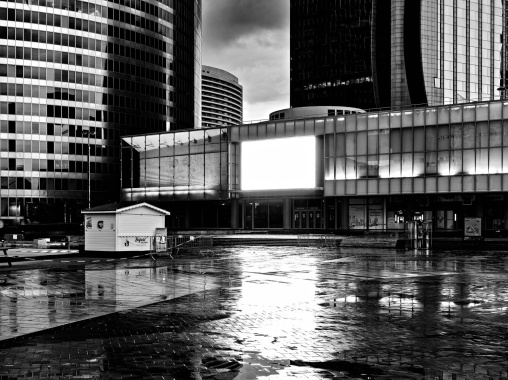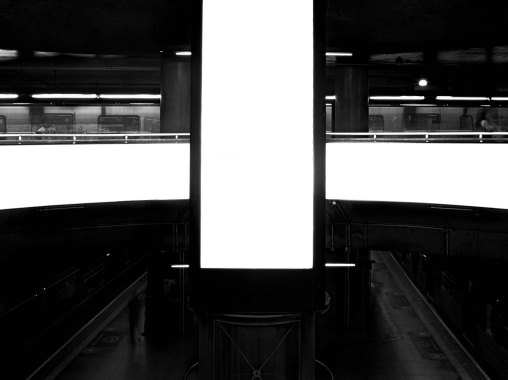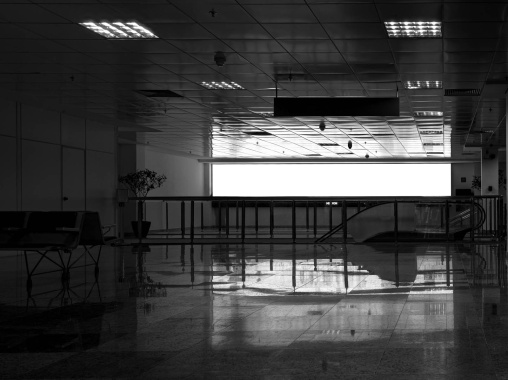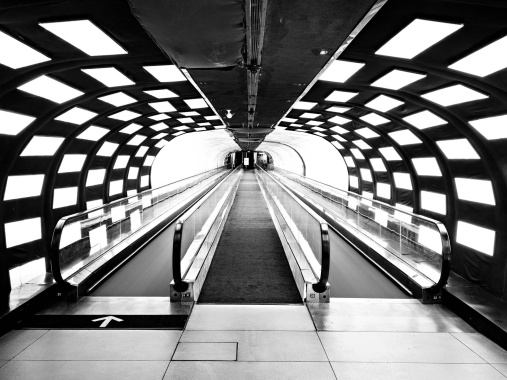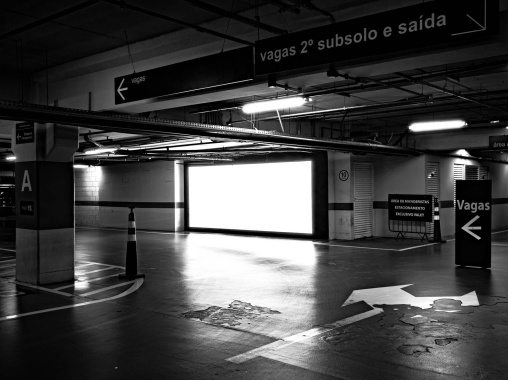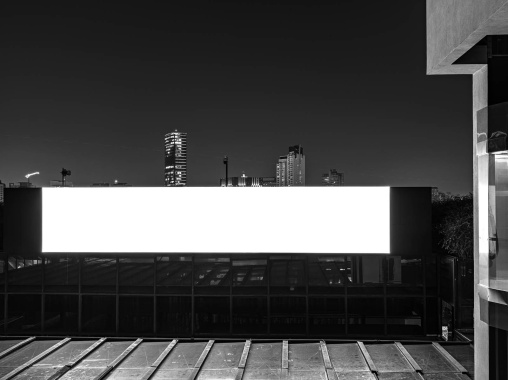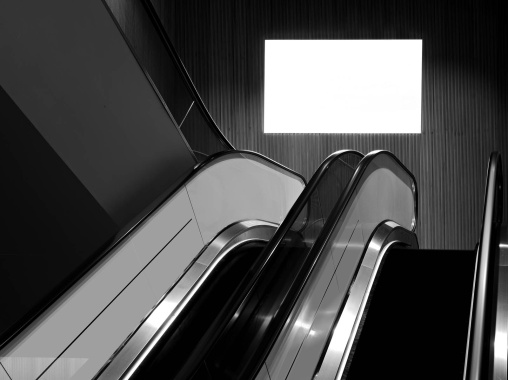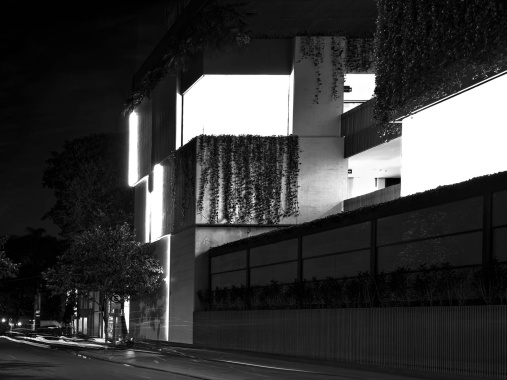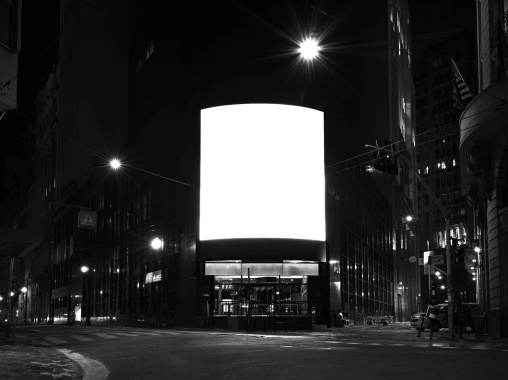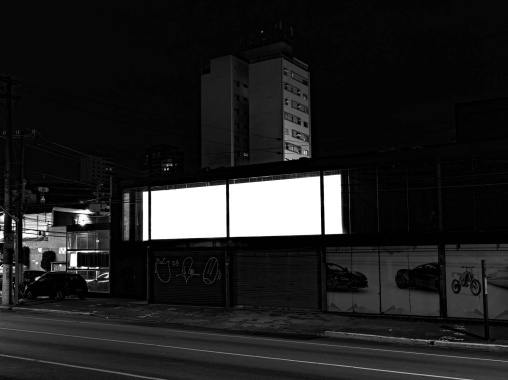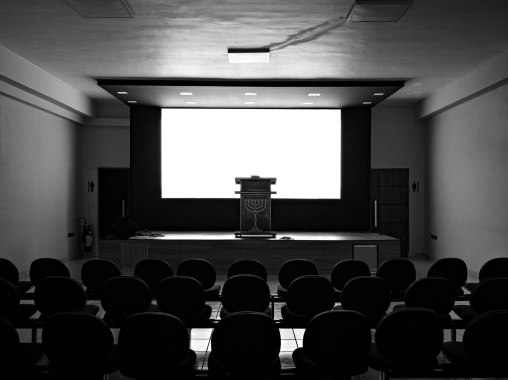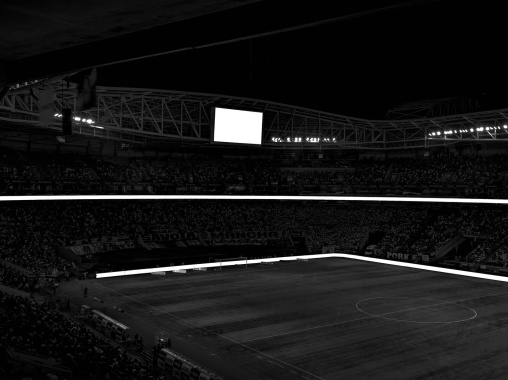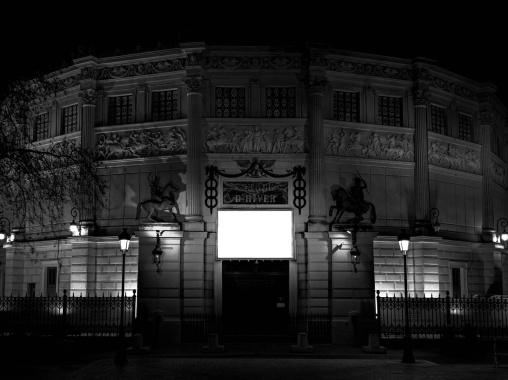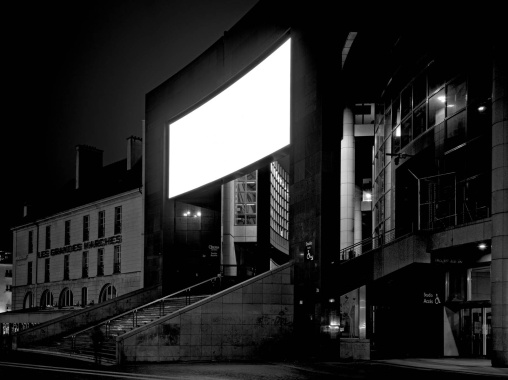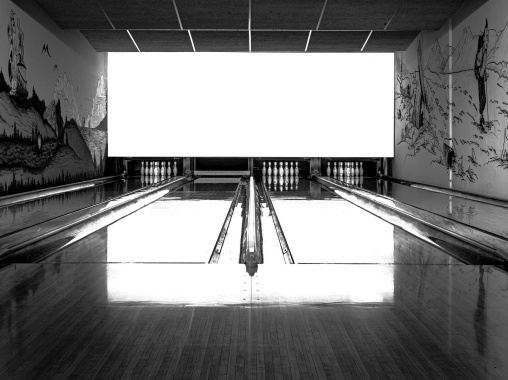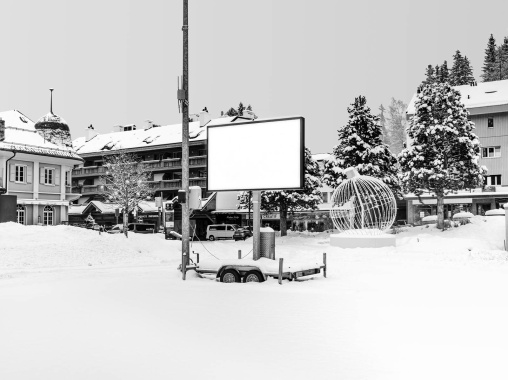Lucas Lenci: Inattention Era
Many people’s daily lives are defined by a permanent sensory overload. The Brazilian photographer’s black and white series presents brilliantly white but empty LED displays found in public places. For him they serve as metaphors for the excessive amount of information we are confronted with, which is more than most people can process. Lenci describes the state of an era characterised by a lack of concentration.
We live in a time of constant visual information. “We fail to fully engage with the richness of our surroundings, whether in public or private spaces,” Lenci muses. “We’re constantly besieged by electronic devices vying for our attention; we exist in an era characterized by pervasive distraction and inattention." This situation is symbolised by huge LED displays, which he photographed in Paris, Switzerland and, above all, in his home town of São Paulo, Brazil. An initial shot in 2016 was the starting point for the series, which he has continued to realise over the last two years.
“My entire body of work is dedicated to igniting introspection in the viewer.”
The number of LED displays is rapidly on the rise everywhere in the world. If you are in a public place there is no way to avoid the visual assault. For his series, Lenci researched the places with the most impressive installations, the most modern and largest screens; and he found them primarily in the Brazilian metropolis of São Paulo. “While I did some preliminary scouting using tools like Google Earth to identify potential vantage points, once on-site I always experiment freely to find the most compelling compositions, Lenci explains. So, he placed his Hasselblad X1 medium-format camera on a tripod in the most suitable spots possible, and usually took pictures at the end of the day, as night was falling. With exposure times of between four and eleven minutes, the various, alternating advertising messages transformed into brightly-lit, empty spaces. The choice of black and white intensifies this effect, making it appear even more dramatic.
“What my images depict is unfolding in real time, right before our eyes, everywhere we look. The media, information overload, and hyper connectedness are overwhelming, reaching a volume we can scarcely manage.”
Lenci’s images are always devoid of any people – a conscious decision he makes because, as he says, “introducing another recognizable individual into the scene could potentially shift the focus of the photograph onto that person, detracting from the essence of the moment captured and the main message of the work. My hope is that it sparks a self-awareness regarding how we navigate through this abundance of information and stimuli.” He considers the results of his work as scenes that exist solely through the photographic process. Consequently, Lenci does not see himself as a documentary photographer, but, “on a photographic level, I strive for my work to exist in a delicate line between truth and illusion. Photography is an incredible tool for presenting your own version of reality—a form of storytelling that can blur the boundaries between fact and fiction. My aim is for my work to provoke reflection, in any form possible. I strongly believe that the practice of self-knowledge is as essential as physical exercise.” The series is not complete, as the photographer is planning to continue working on it in other European cities, as well as the Brazilian metropolis.
Lenci’s series was proposed by Julio Bittencourt, who was among this year’s group of over 80 international LOBA nominators.
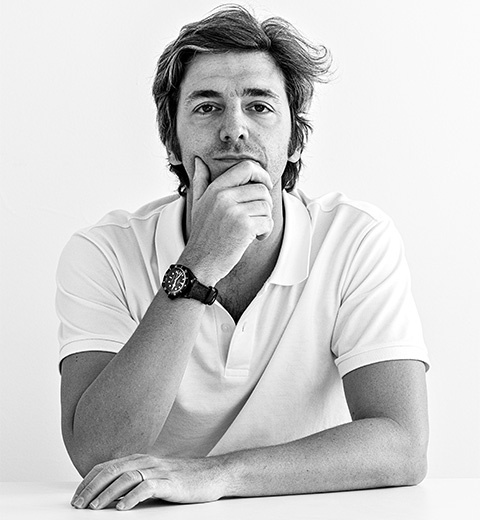
Lucas Lenci
was born in São Paulo, Brazil, in 1980. After completing studies of Photography and Industrial Design, he began his career with commercial, editorial and cultural projects. After spending some time in New York working as an Art Director, he opened his own studio in São Paulo and in 2010 founded the Fotospot online gallery. His work has been exhibited internationally, and he is the recipient of numerous awards. He has published eight photo books to date. Lenci lives with his family in São Paulo.
Portrait: © Lucas Lenci
